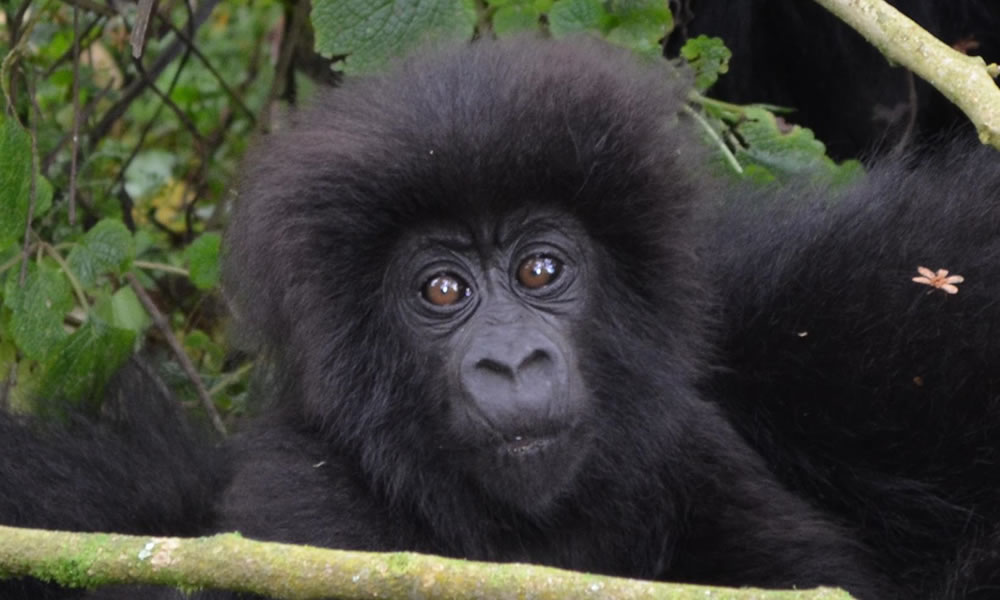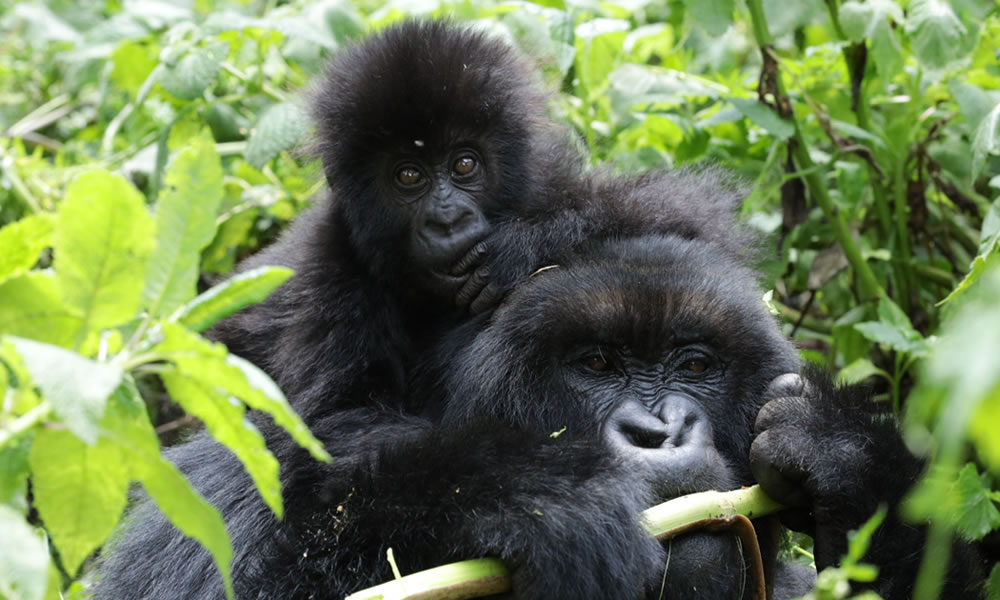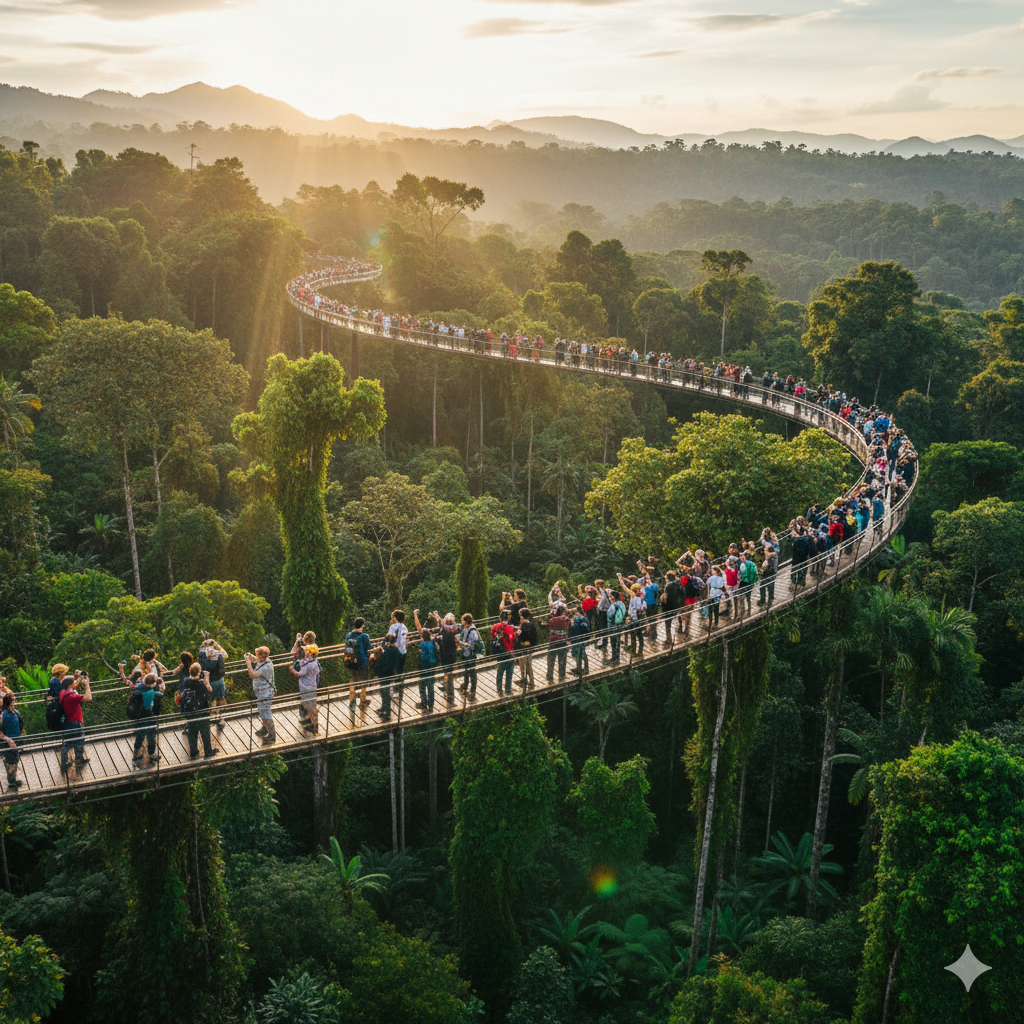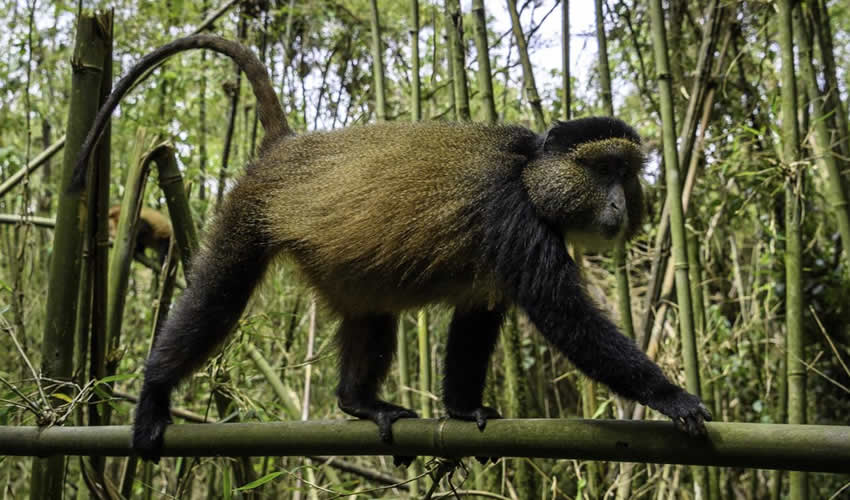Rwanda Gorilla Trekking

Rwanda Gorilla Trekking stands out as one of the most luxurious and unforgettable safari experiences in Africa. While gorillas inhabit over five African nations, only three countries in the world are home to the endangered mountain gorillas.Rwanda is one of these three countries where you can encounter mountain gorillas up close. Among these nations, only Rwanda and Uganda currently offer a politically stable environment that facilitates seamless gorilla trekking.
The gorilla trekking experience is relatively similar across these countries, as the forests are interconnected, and occasionally, mountain gorillas may cross borders due to survival needs or family dynamics.Known as the Land of a Thousand Hills, Rwanda has positioned itself as a premier destination for luxury gorilla trekking in Africa. This reputation has been bolstered by enhancements in accommodation, road infrastructure, and overall security. Before adding Rwanda gorilla trekking to your travel plans, there are several requirements to consider:
– The minimum age for participants is 15 years.
– A gorilla trekking permit for a specific date is mandatory, with permits for foreign non-residents priced at $1,500 each.
– A reasonable level of fitness is necessary, as gorilla trekking involves walking in the jungle for at least four hours, unlike the more sedentary Savannah game drives.
– It is advisable to pack lightly to ease the burden during your trek.
– Advance booking of accommodation is recommended, whether you plan to stay in Kigali or near Volcanoes National Park.
Common Errors to Avoid When Trekking Gorillas.
Here are some of the common mistakes that people make that usually affects the gorilla trekking experience in Rwanda.
Here are several frequent errors that can negatively impact your gorilla trekking experience in Rwanda.
Using a Flashlight for Photography; Taking photos with a flashlight during gorilla trekking is strictly forbidden. This not only endangers your safety but also that of fellow trekkers. If you accidentally use a flashlight, the resulting guilt can be overwhelming, detracting from your overall experience.
Getting Too Close to the Mountain Gorillas; The guidelines for gorilla trekking stipulate that you must maintain a distance of 7 to 10 meters from the mountain gorillas. Unfortunately, some tourists disregard this rule while attempting to capture photos, which can put both themselves and the gorillas at risk. While mountain gorillas are generally gentle creatures, they can become defensive if they feel threatened. Since these animals are also emotional beings, it’s crucial to adhere to the established trekking guidelines to ensure everyone’s safety.
Littering;It is advisable to bring snacks for your trek, but some careless travelers still choose to litter. While they may not see it as a significant issue, this behavior can spoil the experience for others who respect conservation efforts.
Forgetting Your Passport; Your passport serves as your primary form of identification and is often required before embarking on the trek to verify your identity. Forgetting it at your hotel can cause delays not only for you but also for other trekkers, as a passport or valid ID is mandatory for gorilla trekking.
Trekking with cough; Individuals are prohibited from participating in gorilla trekking if they have an airborne illness. However, some may choose to go trekking without revealing that they are experiencing a cough or cold. Since mountain gorillas share a significant amount of DNA with humans, they are particularly susceptible to diseases transmitted by people.
Incorrect Date Reporting; A frequent error made by trekkers is reporting on the incorrect date. Arriving a day early can lead to unnecessary waiting, especially if no flight is scheduled for the following day. Conversely, if you arrive a day later than your designated trekking date, you will be considered a no-show and will not be permitted to trek, as your permit will have expired. In summary, gorilla trekking in Rwanda is a unique experience, characterized by the country’s safety, the well-structured trekking procedures, and the excellent road infrastructure.



